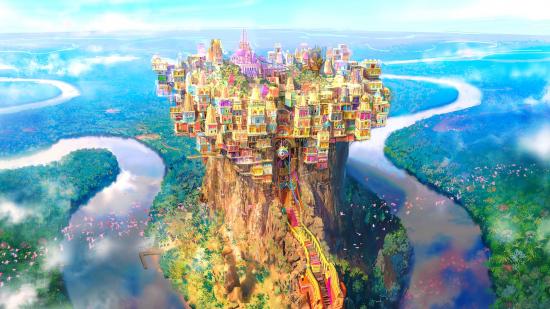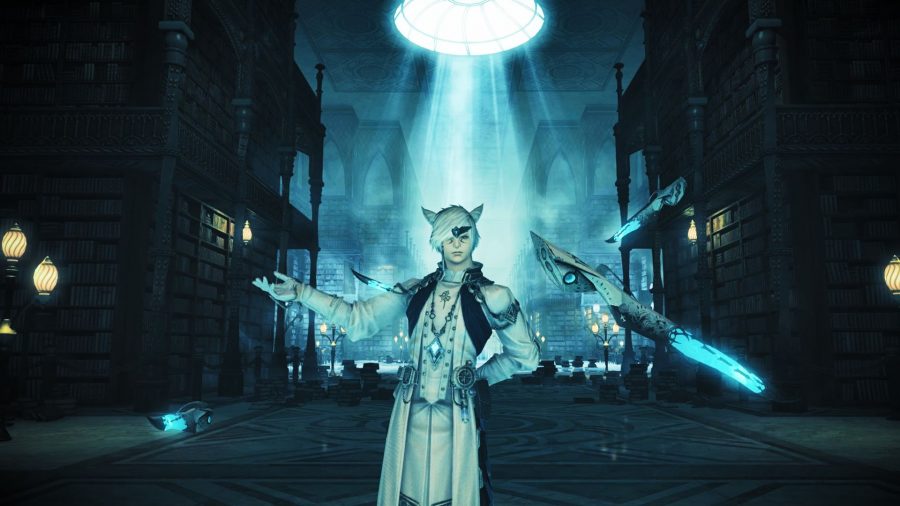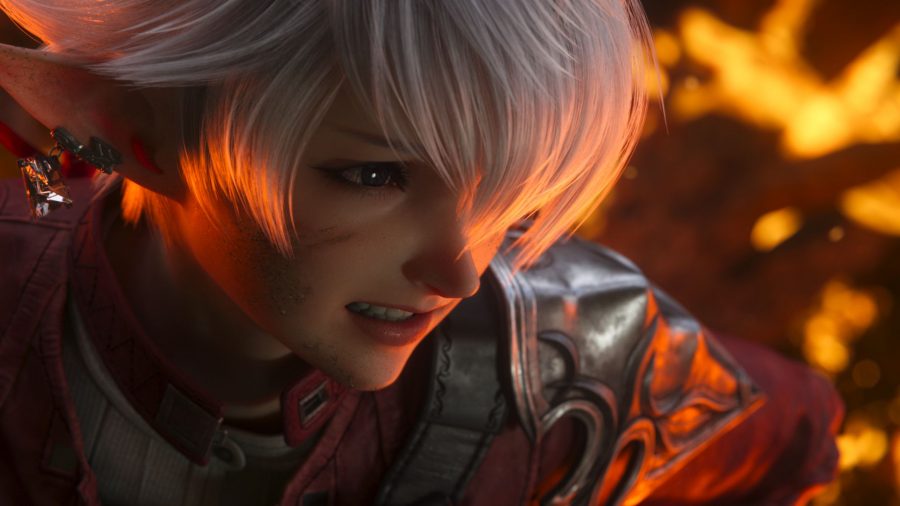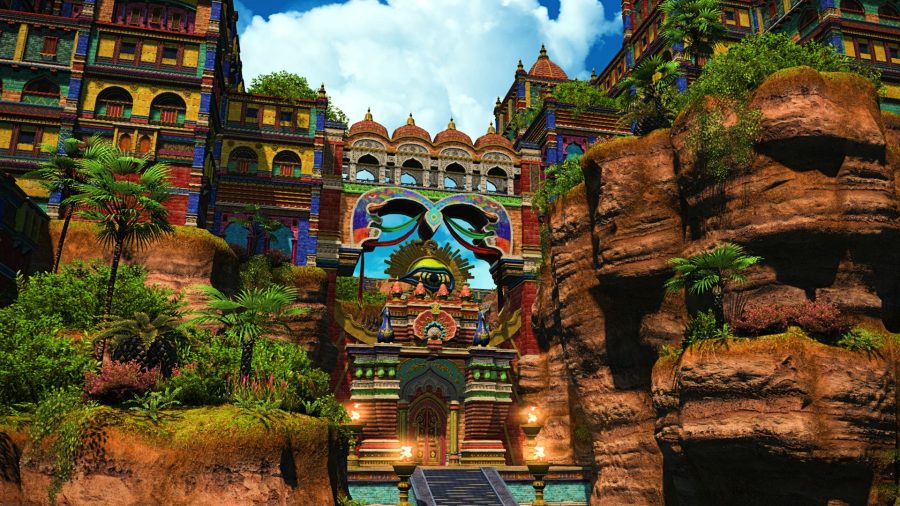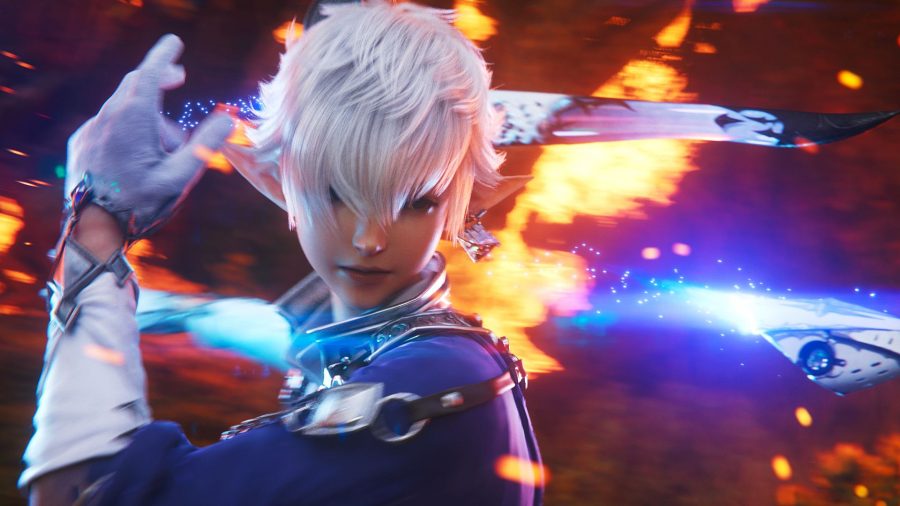Like many of today’s MMORPG monoliths, Final Fantasy XIV is barely recognisable compared to how it looked and played at launch. However, even by MMO standards, few games have undergone a transformation as drastic and important as FFXIV.
FFXIV 1.0 was a critical disaster, prompting an official apology from developer Square Enix and standing in infamy as the rockiest launch in the series’ history. After replacing the development team, Square Enix relaunched the game as Final Fantasy XIV: A Realm Reborn to commercial and critical acclaim. This success has primarily been attributed to one man – director and producer Naoki Yoshida (or Yoshi-P to his fans).
But what does it take to craft one of the best MMOs of the moment? With Realm Reborn now in its eighth year and its eagerly anticipated fourth expansion Endwalker coming out in November, we spoke to Naoki Yoshida about the history of the MMORPG genre, changing player attitudes, and his storied relationship with competitors like World of Warcraft.
PCGN: The past year has seen player numbers boosted as a result of people staying at home during the global pandemic – how do you plan to keep this new generation of fans hooked?
Naoki Yoshida: Yes, a huge number of new players started their adventures in FFXIV and we’ve continued to reach new peaks in terms of our active players. However, in the operations team we’ve decided to refrain from any proactive PR campaigns during the pandemic, and have intentionally been waiting for the situation to ease. I didn’t want our players and supporters to feel as though we’re taking advantage of the situation as a business opportunity while the world faces the danger of the pandemic. We cancelled several campaigns, held back on PR activity, and placed full priority on our patch releases.
Despite that, many of our players came together in-game to enjoy FFXIV exactly because of its stay-at-home nature. I felt that it brought the relationships we’ve built with our players over the past ten years into the spotlight. I want to create opportunities for our newcomers to join in too, and show them not just how fun the game is, but to share the joy of FFXIV.
MMORPGs today look very different to classics like Age of Ultima and Everquest. Looking at Final Fantasy XIV, as well as your competitors, how has the MMO genre had to adapt and innovate to capture changing player interest and attitudes?
I think the only MMORPGs that could be considered equal to Ultima Online [UO] would probably be Lineage and EVE Online, but in my personal opinion there hasn’t been a role-playing experience that’s surpassed that of the original UO. These works have a special place within the MMORPG genre and there’s still demand for them even now, but that demand is by no means great enough to support a large-scale MMORPG project, because they need [a lot of] role-play skill to play effectively. If we could prepare a profitable business model, I’d love to take on the challenge of developing such a game.
EverQuest is another masterpiece of the first generation of MMORPGs. It’s an incredible game that combined a subscription-based business model with a ‘time-to-win’ game design. But it was World of Warcraft that faced EverQuest head-on and provided a new way to play. It wasn’t based on time-to-win, but WoW incorporated an item level system while keeping player skill at its core. Players who invested lots of their time could co-exist with players who didn’t, encouraging a free style of play.
As for the evolving genre, I believe it’s easy for MMORPGs to accept and reflect changes in gamer lifestyles. If you look back about 20 years, were our lives as busy as they are today? There was the internet, but correspondence was limited to email. Real-time communication was limited to PC messenger clients. Nowadays you and I have smartphones in the palms of our hands. We have access to entertainment whenever we have a free moment. It goes without saying that there’s a dramatic drop in the amount of time players have available after eating, sleeping, working, and spending time with their family and friends.
The game design of UO and EverQuest are still shining jewels even today, and I’ve no doubt there is demand for these titles. It’s just that it’s now more difficult to make those games succeed as a major business undertaking. As a result, game design needs to change and innovate to ensure it matches more closely with MMORPG gamers. For FFXIV, we’d like to remain receptive to changes in the lifestyles of our players, and we’ll continue to adjust the design little by little accordingly.
FFXIV is eight years old, and many of your competitors are even older. What gives a good MMORPG such staying power?
Battle content, systems, story, and the game’s universe must be both engrossing and expertly crafted. But I think the secret to maintaining a game’s success is the support of a brilliant community. Developers should provide the player with a sense that they are really living in that world and that they belong there, helping them feel at home when they log into the game.
Of course, this is based on the assumption that the core development team is playing their game privately, like the general playerbase. If they didn’t, they wouldn’t be able to understand player feedback and at some point or the other, they’d end up as enemies from the community’s perspective.
You’ve mentioned before that when redesigning Final Fantasy XIV you looked to World of Warcraft as an example of a successful MMO. What aspects of the WoW model did you end up bringing to FFXIV?
If there was no World of Warcraft – which is a game we look to as a great ‘mentor’ of sorts, and respect deeply – FFXIV’s strong recovery wouldn’t have been possible.
The original FFXIV was a failure of unprecedented proportions and I was entrusted with the duty of salvaging it. When taking the lead to relaunch a failed project, I don’t think you can afford to have the type of game you’d like to create in mind as your motivation. But I was playing WoW, and used that as a form of study. I deployed what I’d learned through the various teams and together we used that in development. We really didn’t have the luxury of bringing our own ‘likes’ and ‘dislikes’.
The main thing was that I wanted the game to be a more story-driven MMORPG. There was a strong influence from FFXI behind this, but with this being a Final Fantasy game, a strong story was naturally a must. That decision wasn’t due to my personal taste, but because of the title’s standing in the Final Fantasy series.
How much do you still look to your competitors for inspiration? Do you try to learn from other games inside and outside the MMO space, or do you try to forge your own path?
I’m always keeping an eye on World of Warcraft, Diablo, and Overwatch, but that’s because I’m a Blizzard fanboy! Everyone over at Blizzard has been really kind to us and they’ve invited me to visit their studio on three or so occasions now. When I went in 2018, the main team joined me in a discussion about the development and operation process. They’re all so considerate and I respect them deeply. There was much I learned from them and I made sure to be completely frank when answering whatever questions they had for me. It really was a joy to learn that there are so many Warriors of Light in the WoW team.
As you can imagine, I’m not solely focussed on WoW, I also check the basic systems of MMORPGs launching around the world. I even have staff in charge of compiling information about them and reporting that to me. However, FFXIV has always carved its own path. We sometimes worry about what direction to take in a few years’ time. We have plans, but it goes without saying that the details of what we’re considering are all top secret.
FFXIV has huge cross-market appeal. Do different audiences across the world have different expectations from the games they play? Or do they expect different games from developers based in the East or West?
It goes without saying that there will be a certain degree of varying cultural preferences due to the different environments in which gamers are brought up. Despite that, through FFXIV I’ve had the opportunity to directly communicate with players across the globe and I feel that there is essentially no difference in expectations. Everyone loves games, loves being part of a community, and wants amazing gameplay experiences.
Being able to create entertaining titles that bring smiles to the faces of all gamers, including myself, as we play them together is what drives me.
Why do you think that Western and Eastern MMOs vary so dramatically in their approach and style?
There is no doubt about the difference in tastes between the West – even between Europe and America – and in Asia when it comes to graphics and characters. On the other hand, if you were to ask me whether there is such a significant difference in the game design process, my personal viewpoint would be that it isn’t so remarkable.
I’m Japanese, but FFXIV has been well-received by players across the globe and we don’t develop it based on the tastes of any region in particular. Community retention schemes differ greatly between Japan, China, and South Korea, so it’s not even possible to treat East Asia as a single group. I think the right approach is to simply create a game that everyone can enjoy.
You can play Final Fantasy XIV for free all the way up to level 60, in case this has got you curious. If you do then our FFXIV races and FFXIV classes guides may be helpful. And if you’re already a veteran then check out our Sage and Reaper job guides. Alternatively, check out some of our other favourite free MMOs for something a little different.
